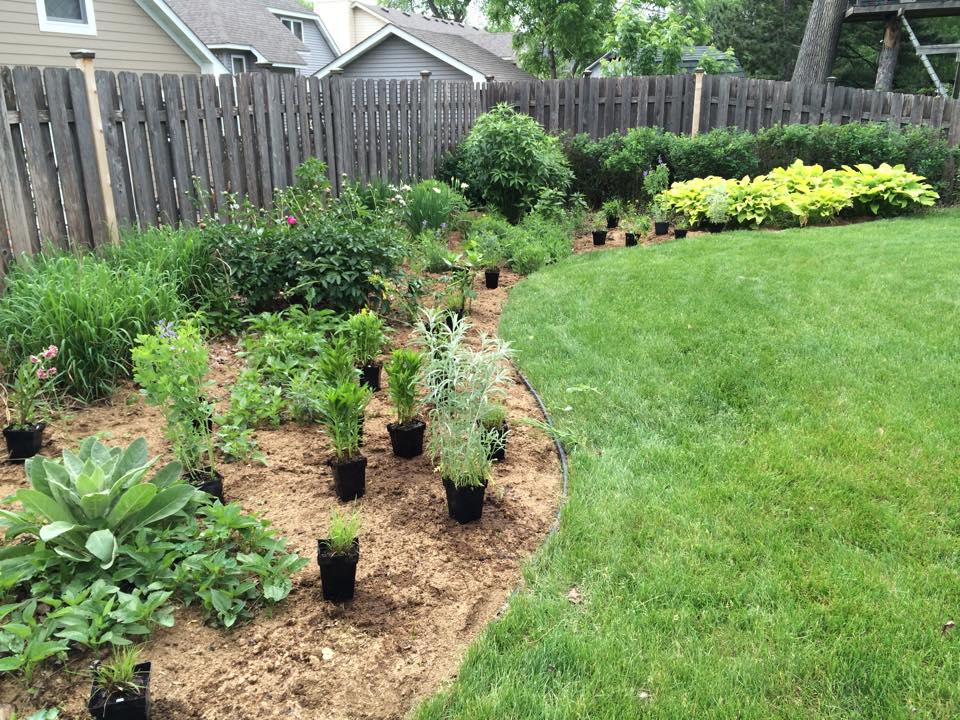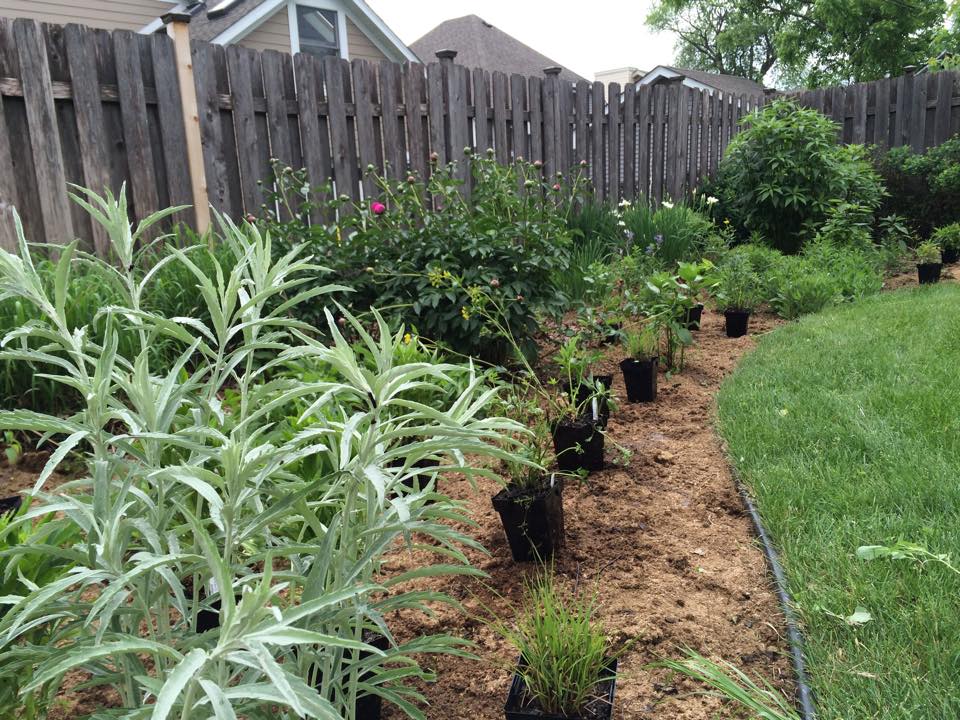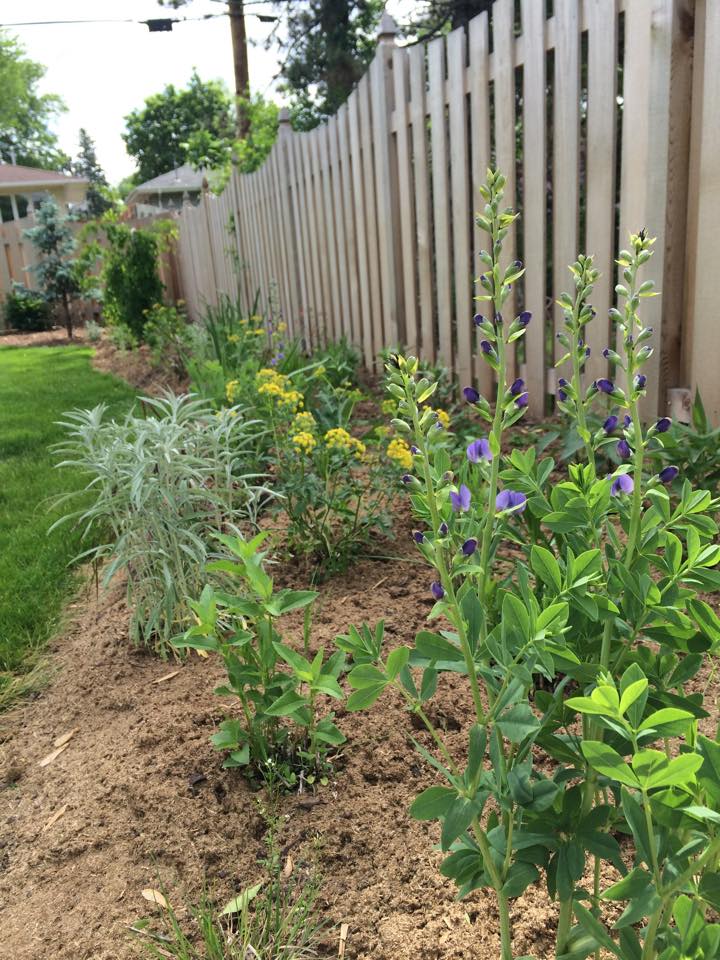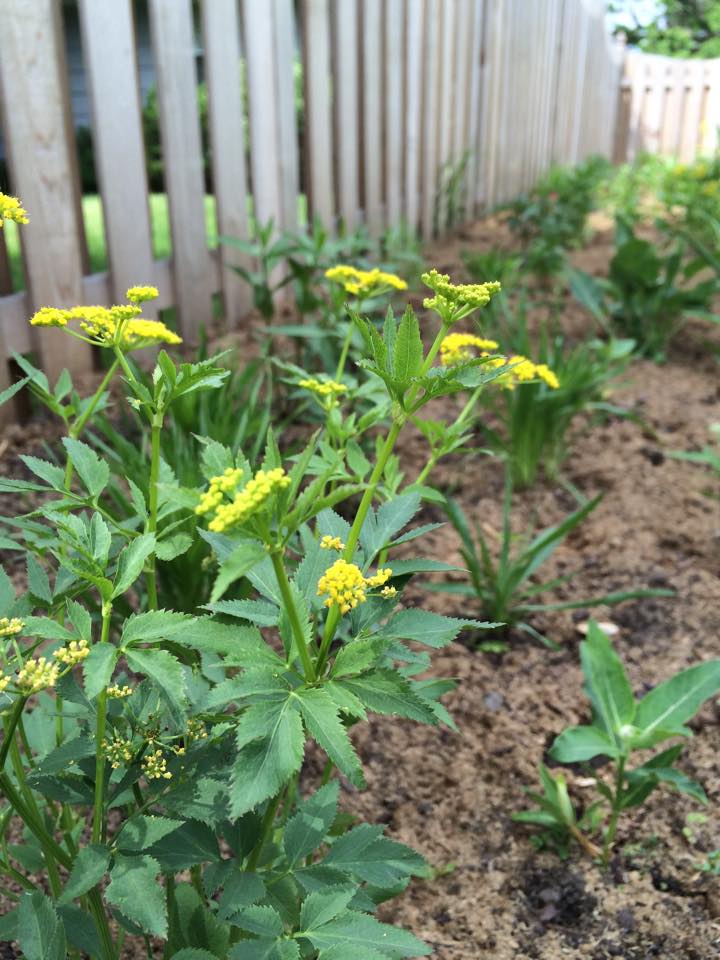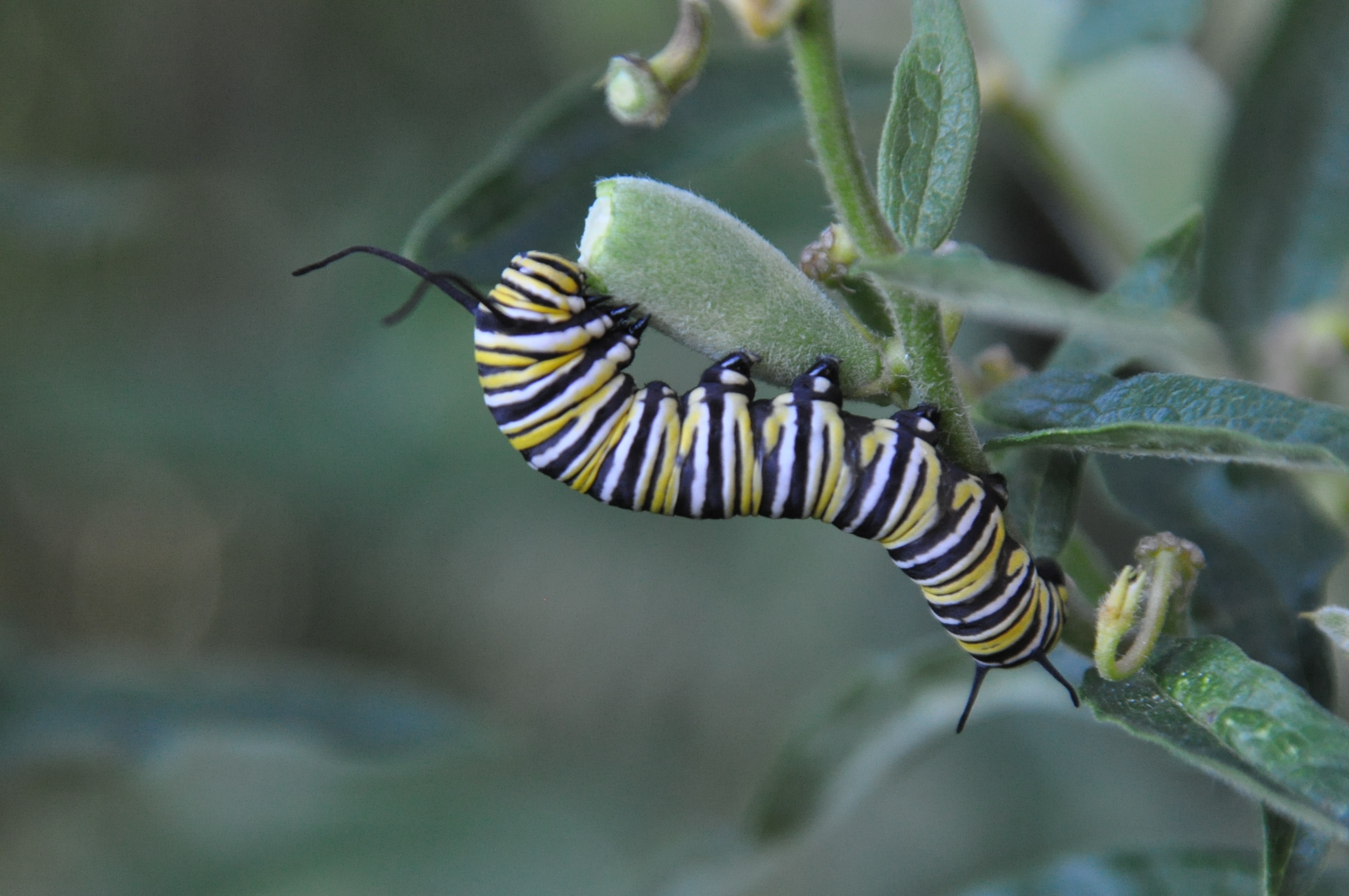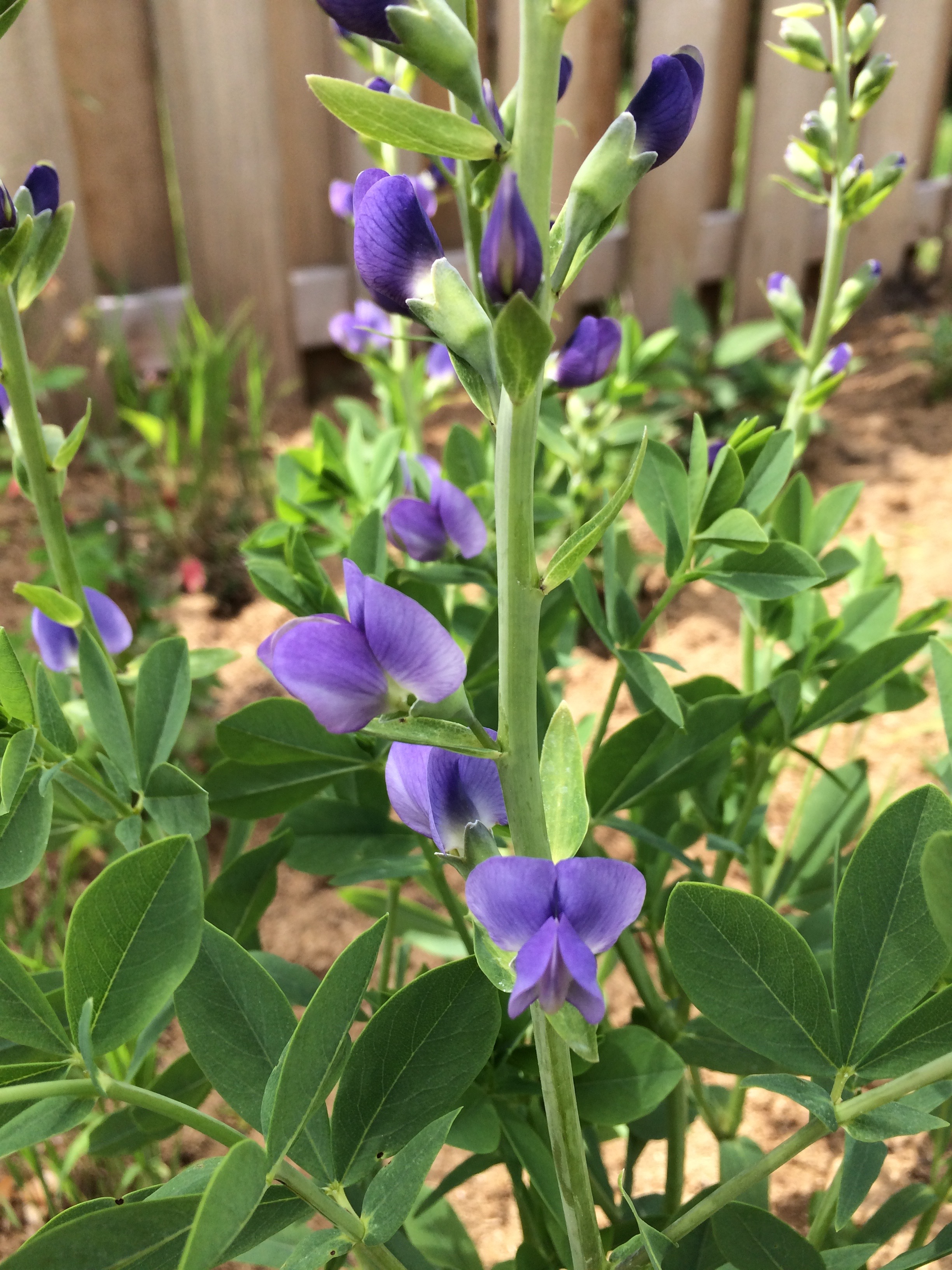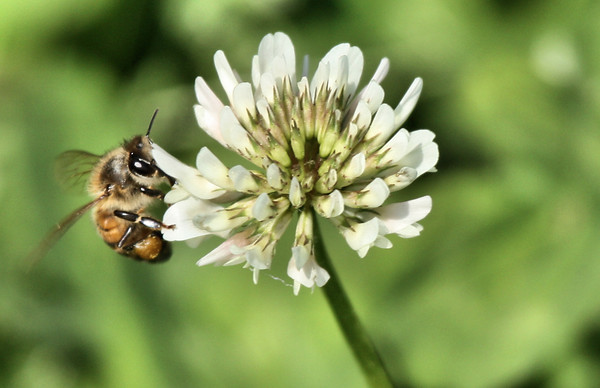Monarch butterflies love milkweed!
Pollinators are creating a big buzz in media around the world. Pollinators are facing a perfect storm of intersecting catastrophes including loss of habitat and the ongoing assault on nature being perpetuated by chemical companies. Scientists are discovering that massive amounts of pollinators are currently facing endangerment and extinction.
Simply put, without pollinators we’re going to be pretty hungry. It’s estimated that 35% of the worlds food crops are grown with the help of pollinating insects, birds, and bats. Without plant pollinations services performed by pollinators we can kiss our apples goodbye. Pumpkins, pears, peaches, peas, and pomegranates are a sampling of the delicious delights we’ll be wishing for if pollinators perish, YIKES.
Both of these beauties were planted today, creating habitat within another new butterfly garden courtesy of Giving Tree Gardens.
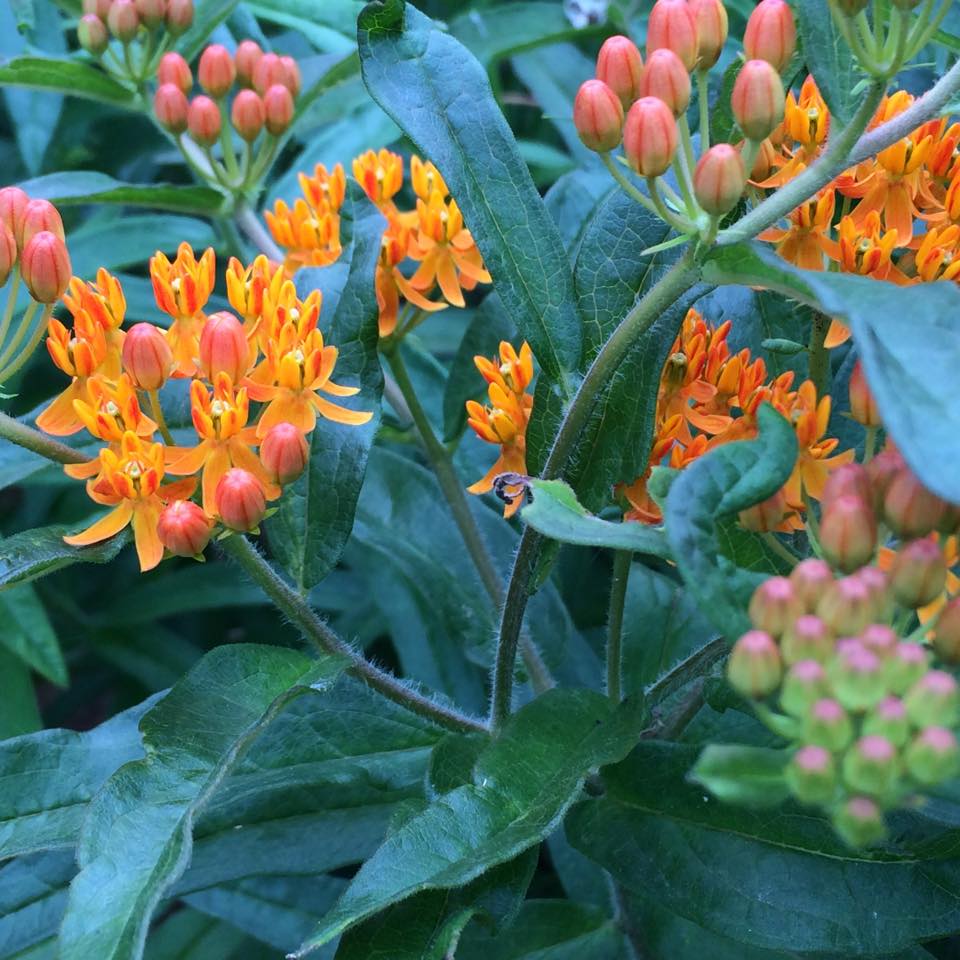

So what can you do to help? Lots!
1. First things first, eat organic. Organic farmers tend to have much better pollinator protections than do pesticide farmers.
2. Call your elected officials and demand organic facilities including parks and schools. The chem industry has a stranglehold on American life and we need to take back our public spaces for public safety.
3. Manage your lawn without pesticides. Herbicides, fungicides, insecticides, and rodenticides are all harmful to pollinators. Go organic, and make sure your lawn services aren’t using any type of ‘icide!
4. Plant a pollinator garden. You’re grass lawn isn’t doing wildlife any favors. Replace as much lawn as you can with deep rooted native perennial plants.
Providing for Pollinators
Below is a handful of my favorite plant varieties that protect and provide for pollinators:

